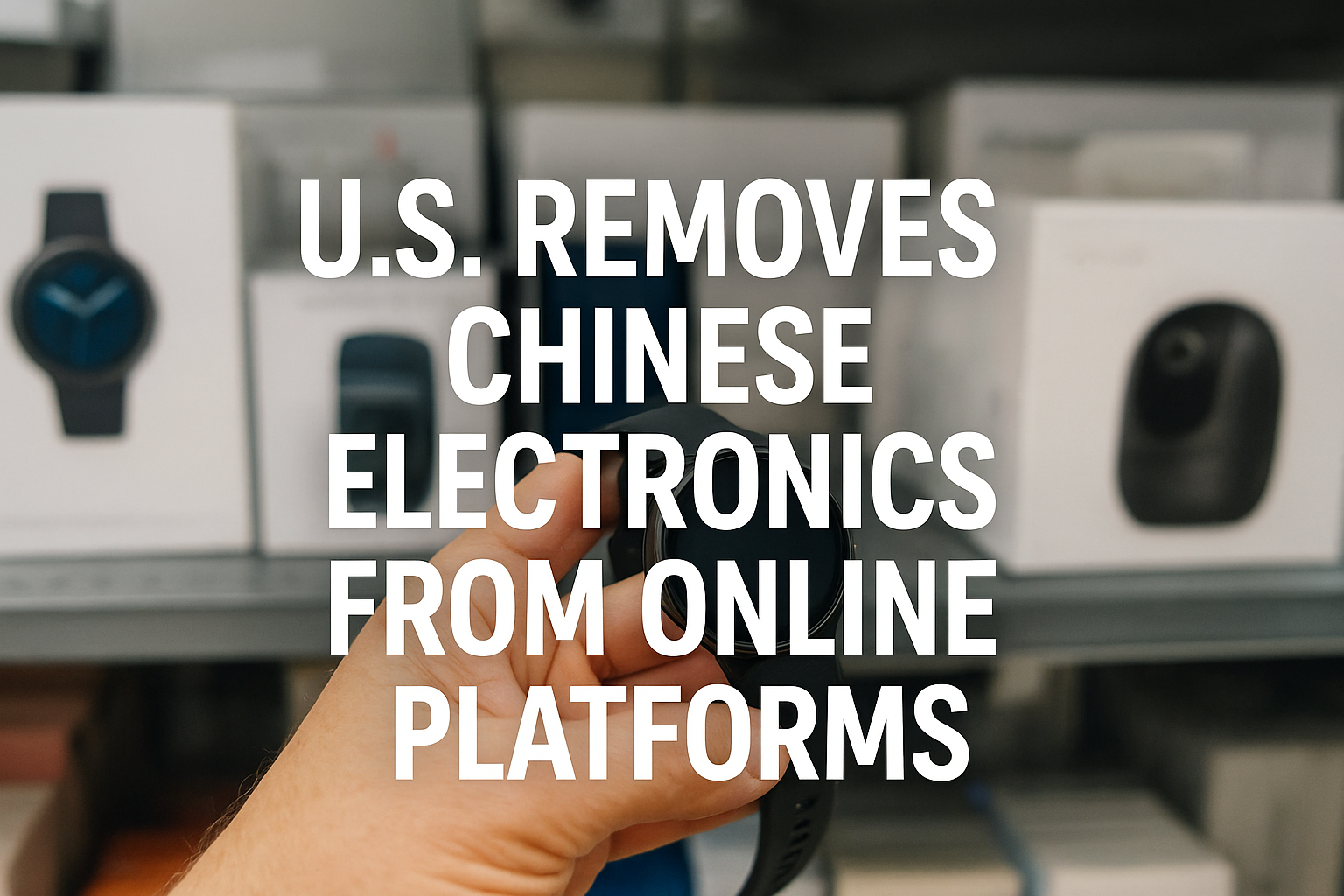The U.S. Federal Communications Commission (FCC) has recently announced stricter scrutiny of electronic and communication devices produced by Chinese manufacturers. Following the decision, several major U.S. online retailers have removed millions of listings involving Chinese brands. The measure covers categories such as smartwatches, surveillance cameras, security systems, and network transmitters, marking a further escalation in Washington’s regulatory pressure on Chinese-made electronics.
According to Reuters, the new FCC directive requires online platforms to remove all unauthorized devices that pose potential security risks or are listed as “restricted.” The companies most affected include Huawei, Hikvision, Dahua Technology, and other Chinese Internet of Things (IoT) suppliers. U.S. officials claimed these devices “may have data collection or remote transmission capabilities,” potentially threatening national security and user privacy.
Retail giants including Amazon, Walmart, and Best Buy have begun implementing the removal orders. External estimates suggest that Amazon alone has taken down more than two million listings, involving thousands of third-party sellers. Walmart stated it “will continue working with regulators to ensure all products meet U.S. legal and safety standards.” FCC Chairwoman Jessica Rosenworcel emphasized in a statement: “We cannot allow uncertified devices to enter the U.S. communications ecosystem. National security and consumer privacy must come before market convenience.”
The sweeping enforcement has drawn wide attention among Chinese American communities. For years, many Chinese households, stores, and small businesses in the United States have relied on Chinese-made security and communication devices for their affordability, reliability, and ease of installation. Some business owners report that since the new rules took effect, certain models have been blocked or frozen in logistics systems, significantly raising replacement costs.
A Brooklyn-based Chinese American security installer said, “We use many Hikvision and Dahua systems, and our clients are familiar with them. Now some models can’t be purchased, and American brands cost at least twice as much.” Industry analysts believe the policy could shift market demand toward manufacturers from South Korea, Japan, and Southeast Asia, while temporarily boosting smaller U.S. electronics brands.
Observers note that the FCC’s decision is one of the most consequential actions since the 2022 Secure Networks Act, which banned U.S. companies from purchasing foreign telecommunications equipment deemed a national security threat. Huawei and ZTE have long been on that list, but this new move extends the restrictions to consumer-grade devices, signaling a further push by Washington to strengthen “supply chain security.”
Some members of Congress said the measure aims to prevent Chinese-made smart devices from transmitting user data overseas via cloud services or app interfaces. However, Chinese companies and government officials have repeatedly denied such allegations, calling the actions politically motivated and protectionist.
A spokesperson for China’s Ministry of Foreign Affairs in Beijing responded that the United States is “overstretching the concept of national security and abusing export controls and technology restrictions,” adding that such actions “undermine global supply chain stability and harm the interests of American consumers themselves.” Several scholars studying U.S.–China technology relations have noted that American regulations have expanded from telecommunications infrastructure to consumer electronics, indicating that the logic of technological decoupling is gradually permeating everyday life.
Meanwhile, Congress is considering further expanding import and sales restrictions on “high-risk electronic products of foreign origin,” which could affect hundreds of billions of dollars in cross-border trade. For Chinese American entrepreneurs active in technology, logistics, and trade sectors, the new policy represents both a challenge and a potential catalyst for compliance innovation and domestic production.


